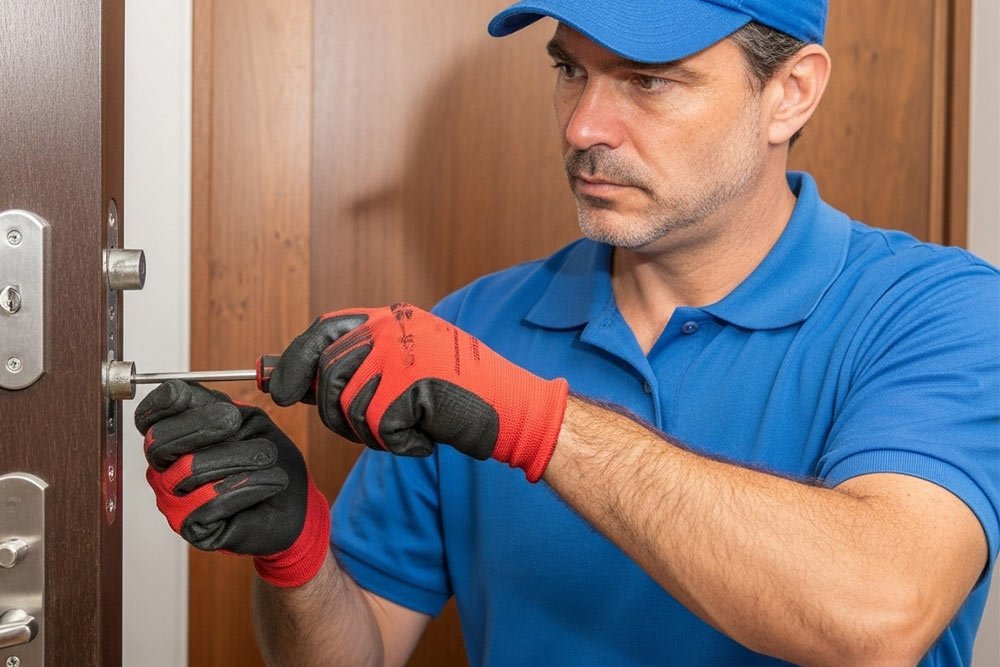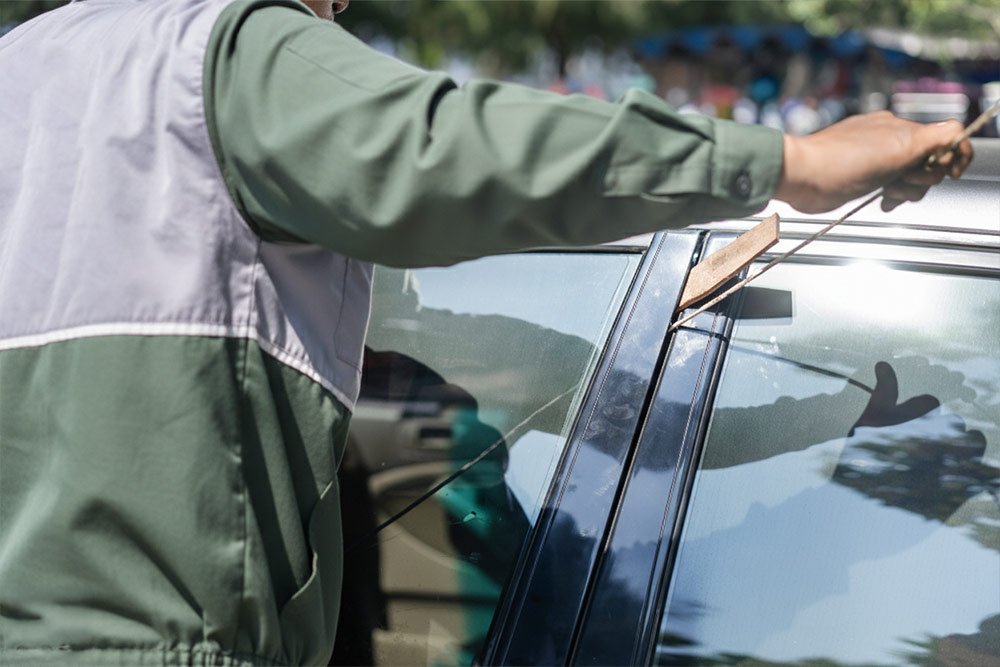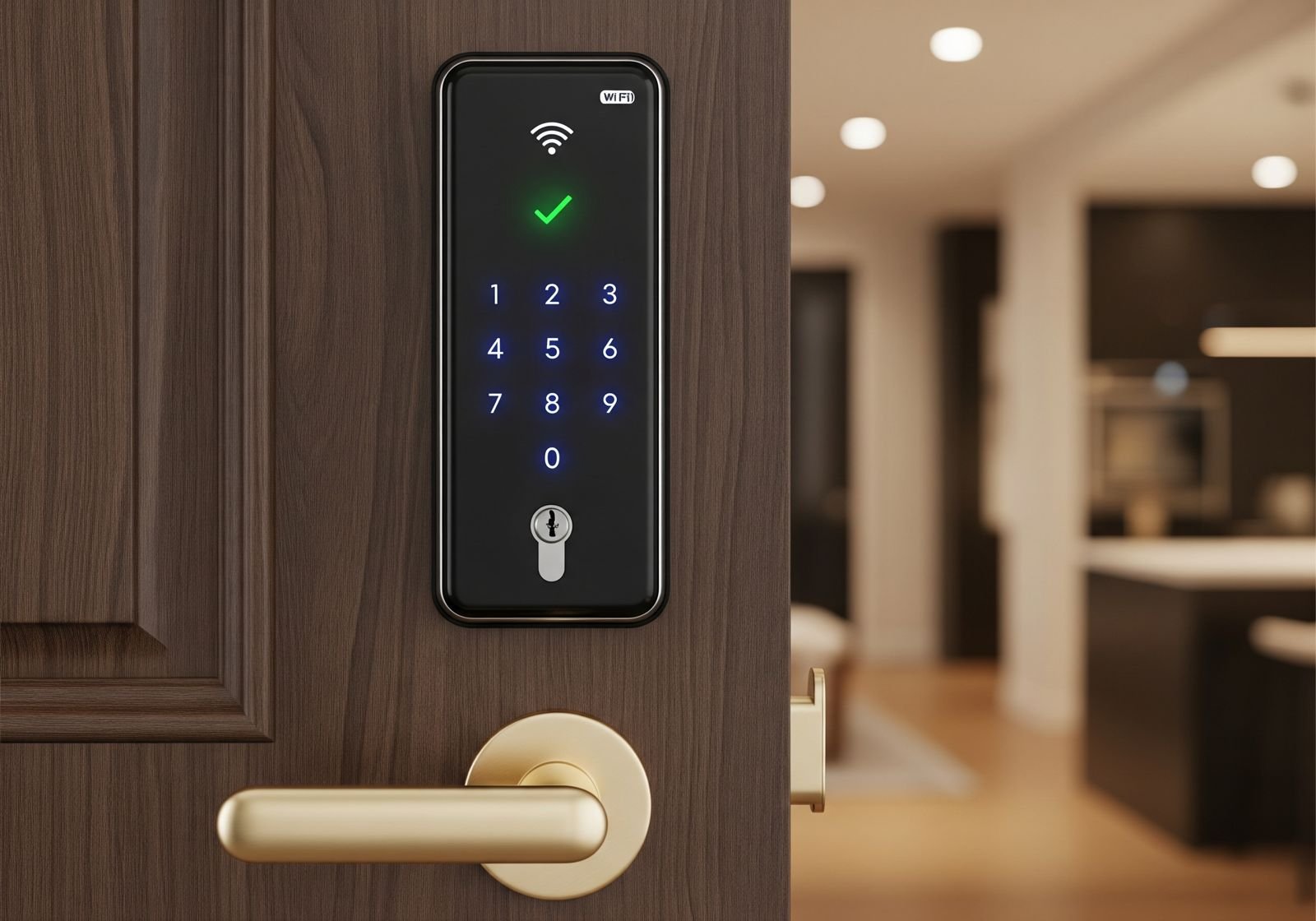Home is where your family feels safest, but that safety largely depends on how secure your entry points are. Many homeowners overlook one of the most critical parts of home security, the locks. A house lock change may seem like a small task, but it can make a massive difference in protecting your family and property. Whether you just moved into a new house, lost your keys, or want to improve your overall security, upgrading your locks is one of the smartest decisions you can make.
This blog will take an in-depth look at why lock upgrades matter, the risks of old or outdated locks, the best modern options available, and practical tips for homeowners considering a house lock change.
Why Your Locks Are the First Line of Defense
Every home security system begins with the front door. Even if you have cameras, alarms, or motion detectors, your locks are the first physical barrier against intruders. Weak or outdated locks make it easier for criminals to gain entry, which puts your family and belongings at risk.
Unlike security cameras or alarms, locks stop the intruder before they even get inside. Think of them as your primary shield, while other security features are support systems. This is why experts recommend reviewing your locks regularly and considering a house lock change when necessary.
Situations That Call for a House Lock Change
Many homeowners are unsure about when to replace or upgrade locks. Here are the most common situations where a house lock change is not only recommended but necessary:
1. Moving Into a New Home:
If you just bought or rented a new home, you cannot be certain about how many people still have copies of the keys. Previous owners, tenants, contractors, or even real estate agents could still have access. Changing the locks ensures that only you and your family can enter.
2. Lost or Stolen Keys:
A lost key could end up in the wrong hands. Even if you think it fell somewhere harmless, the risk isn’t worth it. Replacing your locks immediately ensures no one can use that lost key to access your property.
3. Break-In or Attempted Break-In:
If your home has been burglarized, or if there are visible signs of tampering on your locks, you need to upgrade them right away. Criminals often return to the same property if they know the security is weak.
4. Old or Worn-Out Locks:
Over time, locks can rust, jam, or become easy to pick. If your lock feels loose, sticks when turning the key, or looks visibly old, it’s time to upgrade.
5. Divorce, Separation, or Roommate Changes:
If you recently had a change in living arrangements, such as ending a relationship or a roommate moving out, you may not want those individuals to retain access to your home.
6. Upgrading Overall Security:
Sometimes the decision isn’t about necessity but prevention. Many homeowners proactively choose a house lock change to benefit from advanced features like smart locks or high-security deadbolts.
Risks of Keeping Old or Weak Locks
Failing to update your locks can expose you to several security risks:
- Easy Target for Burglars: Criminals often look for homes with outdated or basic locks because they are easier to pick or force open.
- Lock Bumping Vulnerability: Traditional pin tumbler locks can be opened with a “bump key,” a common burglar trick.
- Reduced Insurance Coverage: Some insurance providers may deny claims if it’s found that your home had outdated or inadequate locks.
- Loss of Peace of Mind: Knowing your locks are weak can create constant anxiety and stress for your household.
Types of Locks Worth Considering
When planning a house lock change, it’s important to understand the available options. Modern locks offer different levels of protection, convenience, and technology.
- Deadbolt Locks: Deadbolts are the most common and trusted type of residential lock. A quality deadbolt adds a strong layer of protection against forced entry. Consider a Grade 1 deadbolt for maximum security.
- Smart Locks: Smart locks allow key-less entry through codes, smartphone apps, or even biometric features like fingerprints. These are ideal for homeowners who want convenience without compromising safety.
- High-Security Locks: These locks are designed with reinforced metal, drill-resistant cylinders, and restricted key-ways (which prevent unauthorized duplication). They are harder for burglars to bypass.
- Key-less Entry Systems: Keypads and electronic locks eliminate the need for physical keys, reducing the risk of losing them. Many models also allow temporary codes for guests or service providers.
- Mortise Locks: Commonly used in commercial properties, mortise locks are extremely durable and provide enhanced strength for residential doors as well.
- Smart Deadbolt + Traditional Lock Combo: For maximum protection, some homeowners use both a high-quality deadbolt and a smart lock system for layered security.
Benefits of a House Lock Change
A house lock change is not just about replacing metal hardware. It brings long-term benefits that go beyond physical security.
1. Enhanced Security Features:
Modern locks come equipped with advanced security features that offer better protection against unauthorized access. These features may include pick-resistant cylinders, smart lock technology, and keyless entry options, which significantly reduce the risk of break-ins.
2. Reinforced Durability:
Older locks, particularly those that have been in place for several years, may have weakened due to wear and tear. Upgrading to new locks ensures that you have durable fixtures that can withstand attempts to break in, providing a strong defense against potential threats.
3. Improved Technology:
The security landscape is continually evolving, and with it, the technology behind door locks. By opting for a house lock change, you can take advantage of innovations like electronic locks that offer remote access, biometric systems that use fingerprints, and systems that can be integrated with your home security network.
4. Better Key Control:
Many modern locks offer better key control options, including restricted keys that can only be duplicated by authorized personnel. This reduces the chances of unauthorized duplication and enhances your overall security.
5. Peace of Mind:
Knowing that your home is equipped with the latest security measures can provide significant peace of mind. You can rest assured that your family and belongings are better protected against intruders, allowing you to focus on what truly matters.
6. Increase Property Value:
Investing in high-quality locks not only enhances your security but can also improve the overall value of your property. Prospective buyers often consider the security features of a home, and having modern locks can be a selling point.
7. Insurance Benefits:
Many insurance companies offer discounts for homeowners who have upgraded their locks. This can lead to lower premiums and contribute to the overall cost-effectiveness of upgrading your home security.
House Lock Change vs. Re-keying: Which One Is Better?
Homeowners often wonder whether they should re-key or replace their locks. Let’s break it down:
- Rekeying means adjusting the lock cylinder so old keys no longer work, while issuing new keys. This is cost-effective if the locks are in good condition.
- Replacing (house lock change) means installing brand-new locks altogether. This is ideal if the current locks are outdated, damaged, or lack advanced features.
If your locks are relatively new and in good condition, re-keying might be enough. But if you want modern features, maximum durability, or higher resistance to burglary, a full house lock change is recommended.
Professional vs. DIY Lock Change
Some homeowners attempt to change locks themselves, but hiring a professional locksmith is often the safer choice.
Benefits of Hiring a Professional:
- Proper installation that ensures locks function as intended.
- Expert advice on the best lock types for your doors.
- Faster and more efficient service, especially in emergencies.
- Warranty and guarantees on products and labor.
Risks of DIY:
- Incorrect installation that leaves the door vulnerable.
- Wasted money if you purchase incompatible locks.
- Potential damage to your door frame or hardware.
Unless you have experience with lock installations, a professional locksmith is the best option for a secure and reliable house lock change.
Tips for Choosing the Right Locks
When upgrading your home locks, keep these factors in mind:
- Door Material – Some locks are better suited for metal, wooden, or fiberglass doors.
- Lock Grade – Choose ANSI Grade 1 for the highest level of residential security.
- Budget vs. Features – Balance affordability with the level of protection you need.
- Convenience – If you want easy access, consider smart locks or keyless entry systems.
- Aesthetics – Locks also impact the appearance of your doors, so choose designs that match your home style.
- Future-Proofing – Invest in locks that can integrate with smart home systems.
Cost of a House Lock Change
The cost depends on the type of lock, number of doors, and whether you hire a professional. On average:
- Standard lock replacement: $50–$150 per lock
- High-security locks: $200–$500 per lock
- Smart locks: $150–$400 per unit
- Locksmith labor: $75–$200 per visit
Although a house lock change requires some investment, the security and peace of mind it provides make it well worth the cost.
How Often Should You Change Your Locks?
There is no strict rule, but most security experts recommend a house lock change in the following intervals:
- Every 5–7 years, depending on wear and tear.
- Immediately after moving into a new home.
- Right after losing keys.
- Following a break-in attempt.
- When upgrading to modern security systems.
Regularly inspecting your locks ensures you stay one step ahead of potential threats.
Additional Security Measures to Complement New Locks
A house lock change is essential, but it works best when paired with other security measures:
- Install a Security Camera or Doorbell Camera – Provides real-time monitoring of entry points.
- Add Reinforced Door Frames – Even the strongest lock won’t help if the door frame is weak.
- Use Strike Plates and Reinforcement Hardware – Strengthens the door against forced entry.
- Outdoor Lighting – Well-lit entrances deter burglars.
- Alarm Systems – Notify you and authorities of unauthorized entry attempts.
FAQs: Upgrading Your Home Locks
Q1: How do smart locks enhance home security compared to traditional locks?
A1: Smart locks offer features like key-less entry, remote access monitoring, and tamper alerts, providing a higher level of security compared to traditional locks. They eliminate the risk of lost or stolen keys and allow you to control and monitor access to your home remotely.
Q2: Can I install high-security locks myself, or should I hire a professional locksmith for a house lock change?
A2: While DIY installation is possible, professional installation is recommended for high-security locks. A locksmith ensures proper alignment, functionality, and optimal security, preventing potential vulnerabilities and voiding warranties.
Q3: How can restricted key systems prevent unauthorized key duplication and enhance my home’s security?
A3: Restricted key systems require special authorization for key duplication, preventing unauthorized copies from being made. This ensures that only authorized individuals have access to your home, reducing the risk of break-ins and enhancing overall security.
Myths About House Lock Changes
There are several misconceptions that prevent homeowners from upgrading their locks:
- “Locks last forever.” In reality, locks wear down and become outdated.
- “Only expensive locks are good.” Even affordable deadbolts can provide solid protection if installed properly.
- “I don’t need new locks because I live in a safe neighborhood.” Crime can happen anywhere, even in areas considered safe.
- “Smart locks are easy to hack.” While no system is foolproof, reputable smart locks use strong encryption and are harder to bypass than many traditional locks.
Conclusion:
Your home should always be a place of comfort and safety. A house lock change is one of the most effective and affordable ways to upgrade your security, protect your belongings, and safeguard your loved ones. Whether you’re moving into a new home, recovering from a break-in, or simply want to embrace modern lock technology, replacing your old locks is a smart investment.
By choosing the right lock type, hiring AAA Mega Locksmiths, and pairing your locks with other security measures, you can enjoy greater peace of mind and confidence that your home is well-protected.




